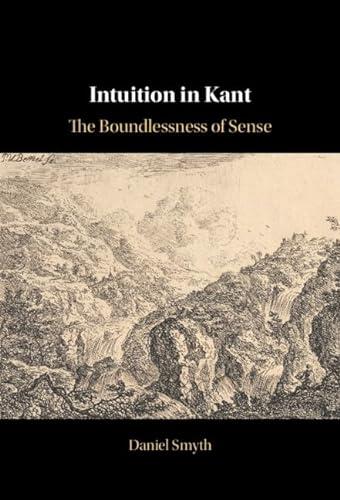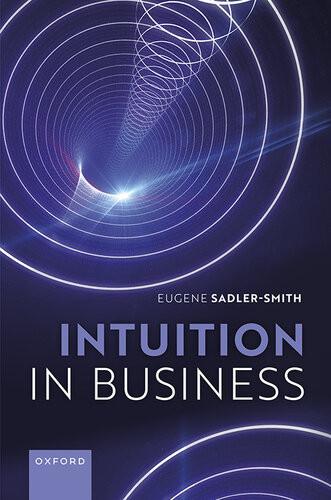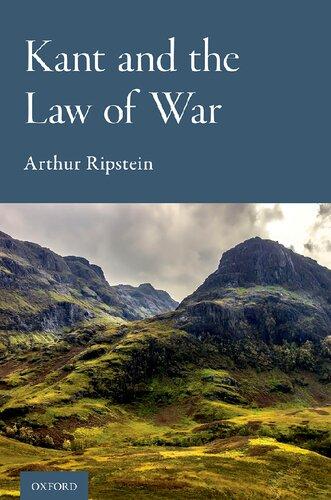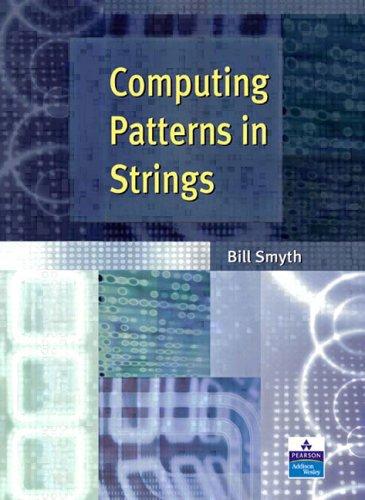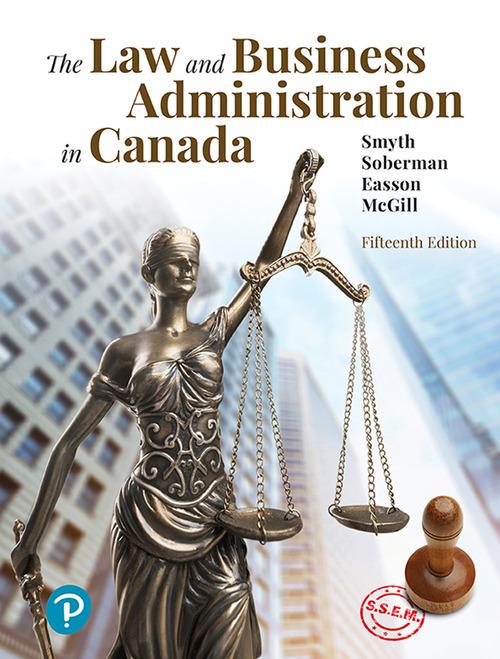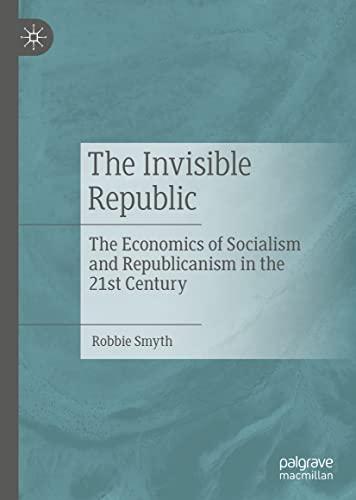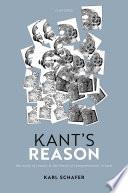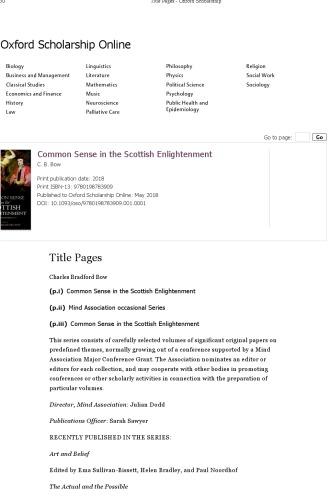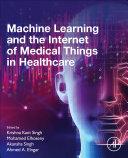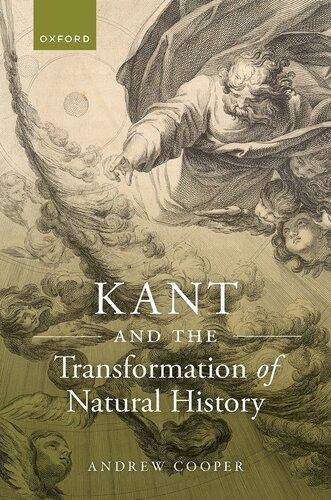INTUITIONINKANT
TheBoundlessnessofSense
DANIELSMYTH
WesleyanUniversity,Connecticut
ShaftesburyRoad,Cambridge ,UnitedKingdom
OneLibertyPlaza, thFloor,NewYork, ,USA
WilliamstownRoad,PortMelbourne, ,Australia
, rdFloor,Plot ,SplendorForum,JasolaDistrictCentre,NewDelhi – ,India
PenangRoad,#–/,VisioncrestCommercial,Singapore
CambridgeUniversityPressispartofCambridgeUniversityPress&Assessment, adepartmentoftheUniversityofCambridge.
WesharetheUniversity’smissiontocontributetosocietythroughthepursuitof education,learningandresearchatthehighestinternationallevelsofexcellence.
www.cambridge.org
Informationonthistitle: www.cambridge.org/
Thispublicationisincopyright.Subjecttostatutoryexceptionandtotheprovisions ofrelevantcollectivelicensingagreements,noreproductionofanypartmaytake placewithoutthewrittenpermissionofCambridgeUniversityPress&Assessment.
AcataloguerecordforthispublicationisavailablefromtheBritishLibrary ACataloging-in-PublicationdatarecordforthisbookisavailablefromtheLibraryofCongress
Hardback CambridgeUniversityPress&Assessmenthasnoresponsibilityforthepersistence oraccuracyofURLsforexternalorthird-partyinternetwebsitesreferredtointhis publicationanddoesnotguaranteethatanycontentonsuchwebsitesis,orwill remain,accurateorappropriate.
Itistoolittletocall Man a littleWorld;Except God,Manisa diminutive tonothing.Manconsistsofmorepieces,moreparts, thantheworld;thantheworlddoeth,naythantheworldis.And ifthosepieceswereextended,andstretchedoutinMan,asthey areintheworld,Manwouldbethe Gyant,andtheWorldthe Dwarfe,theWorldbutthe Map,andtheManthe World JohnDonne, DevotionsuponEmergentOccasions, , MeditationIV
Variouspredicatesofspacethatonewouldotherwiseregardas objectivecannowbeexplainedthroughthisconcept[sc.ofspace]in viewofitsorigin. .Spaceisunitary[einig],becauseitistheformof representationsofeverypossibleouterobjectinaunitarysubject. . Spaceisinfinite.Forthecapacitytosuffer[Fähigkeitzuzulassen] variousimpressionsofouterthings,orreceptivity[Empfänglichkeit], hasnolimitations[Schranken]initself. .Spaceisnecessary;foritis thatuponwhichthepossibilityofthesensesisgrounded.
Kant,R
Whenamansummonedtoanimatedobservationbeginstodo battlewithnature,heinitiallyfeelsaprodigiousdrivetosubjugate itsobjectstohimself.Yetitdoesnottakelongforthemtointrude soviolentlyuponhimthathewellfeelshowmuchcausehehasto acknowledgetheirpowerandtoadmiretheirefficacy.Nosooner hasheconvincedhimselfofthisreciprocalinfluencethanhe becomesawareofadoubleinfinity,intheobjectsthe manifoldnessofbeingandbecomingandtheirlivelycriss-crossing relations,inhimself,however,thepossibilityofaninfinite development,asherefineshisreceptivityaswellashisjudgment toevernewformsofup-takeandreaction.
Goethe, “ApologyfortheUndertaking,” IdeasonOrganicFormation,
Contents
Acknowledgments page ix
Abbreviations,Citations,andOtherConventions xi
Introduction:FromInfinitytoGivenness:Kant’sApperceptive FacultyPsychologyandHisTop-DownApproachtoIntuition
ChapterSummaries
Reason’sSelf-KnowledgeandKant’sCriticalMethodology
UnfoldingAPrioritheMereConceptofaFacultyofKnowledge
. PureGeneralLogicasa Selbsterkenntnis ofReason
. Critiqueasa Selbsterkenntnis ofReason
. ProsecutingaCritiqueviaPureApperception
SyntheticJudgmentandIntuition:TheSensibility/ UnderstandingDistinctioninthe “Introduction”
KnowledgethatComestoBe
. AnalyticityandIntellectualGroundsofTruth
. SyntheticJudgmentandIntuition
. FeaturesandAdvantagesofThisInterpretation
. Self-ConsciouslyTrackingtheTruth
. IntuitionandReceptivity
AnApperceptiveApproachtotheTranscendentalAesthetic
. ApperceptionandthePreliminaries
. Kant’sTeleologicalLanguageinthePreliminaries
. DiscursivityandGenerality;ImmediacyandGivenness
. ReceptivityandSensibility
SensationintheAbstract:MatterandFormofIntuition
Conclusion
Exposition,ConceptualAnalysis,andApperception
IsolatingSensibility:EliminationversusAbstraction
OriginalAcquisitionandAPriori,GivenConcepts
ExpositionasConceptualAnalysis
. CompetentUseastheCriterionofMarkhood
. Conclusion
Infinity,Discursivity,Givenness:TheIntuitiveRootsof SpatialRepresentation
ApproachingtheThirdMetaphysicalExposition
CriteriaofIntuitiveandDiscursiveRepresentation
. HolisticContainmentStructureandContinuity
. InfinitaryIntuitions,FiniteConcepts
. TheBoundlessnessofSense
Prolegomenatoa Stufenleiter ofKantianIntuition
. PeculiaritiesofPorphyrianTrees
. PorphyrianClassificationsinKant
. The Stufenleiter Passage(A/B)
. Stufenleiter asTargetedAnalyticalTools
A Stufenleiter ofKantianIntuition,PartI:Intuition u¨berhaupt andSpontaneousIntuition
ATargetedAnalysisofHumanIntuition
. GivennessasCriterionofIntuition u¨berhaupt
. CognitiveSpontaneityasDifferentia
A Stufenleiter ofKantianIntuition,PartII:Receptivity andSensibility
Sensible-AffectionDependenceasDifferentia
Self-RepresentationasDifferentia
LevelsofAbstraction,TypesofEvidence,andFeaturesof KantianIntuition
Bibliography
Index
Acknowledgments
ThisprojectbeganasadissertationattheUniversityofChicagoovera decadeago.Nopartofthatdissertationsurvivesinthepresentbook,but theformativeinfluenceofmyadvisorsandmyfellowgraduatestudents endures.RobertPippin’sbreadthandsavvytaughtmethevalueofviewing issuesagainstawidehistoricalhorizonandofimaginativelyinhabiting unfamiliarposturesofthought.JimConant’scapacityforslow,generous readingshowedmetheimportanceofattendingcloselytophilosophical methodology.FromDanielSutherlandIlearnedtoappreciatethefecundityofKant’sphilosophyofmathematicsandtheacuityofitsscholars.And AnatSchechtmanintroducedmetotheprofundityofLeibniz’sand Descartes’sviewsoninfinityandhelpedmetoseetheirrelevanceto Kant.Iamforeverdiscoveringandre-discoveringgemsthattheymanaged toslipintomypockets.I’mgratefultoNathanBauer,ThomasLand, JustinShaddock,andClintonTolleyfordiscussingKantwithmebefore IknewwhatIwastalkingabout.AndI’mgratefultoSimonGurofsky, JoshuaMendelsohn,AndrewPitel,DanielRodriguez-Navas,JessTizzard, andAndyWernerforcontinuingthosediscussionsafterIwouldnot shutup.
IoweagreatdebttothebroadercommunityofKantscholarsfor cultivatinganintellectualestuaryforup-and-comersthatisatoncenurturingandrigorous.MyviewsandhabitsofmindhaveimprovedimmeasurablyfrombeinganactivememberoftheNorthAmericanKantSociety. Forencouragement,intellectualcamaraderie,andinvaluableinsightsat variousstagesalongtheway,IamgratefultoMattBoyle,EmilyCarson, RosalindChaplin,AndrewChignell,StephenEngstrom,AnilGomes, JohannesHaag,AndreaKern,PatKitcher,MichelleKosch,Samantha Matherne,ColinMcLear,BennettMcNulty,JamesMessina,Sasha Newton,SebastianRödl,TimothyRosenkoetter,UlrichSchlösser,Lisa Shabel,NickStang,andRachelZuckert.Ihaveparticularlybenefitted fromextendedconversationswithIanBlecher,ThomasLand,andTyke
Nunez.AndIcannotbegintosurveythedebtsIowetomyclosest interlocutorsaboutKant(auchallenDingenu¨berhaupt),TillHoeppner andJessTizzard.IshuddertothinkwhereIwouldbewithouttheirgood senseandgoodhumor.
Ialsobenefittedfromacuteandconstructivereportsbytwoanonymous reviewersforCambridgeUniversityPress.For findingsuchfantastic readersandforguidingmethroughthereviewandpublicationprocess withpatienceandpracticality,IamgratefultoHilaryGaskin.Thanksare alsoduetoCameronCookforcreatingthe Index andtomydepartment forpayingforit.
Theprocessofwritingthisbookwasnowalkinthepark,soIam especiallygratefultomywonderfulcolleaguesatWesleyanUniversityfor advice,moralsupport,andwalksinthepark.MycolleaguesintheCollege ofLetters,aswellasmycomradesinthePhilosophyDepartment,worked toensurethatIfeltvaluedandsecure,activelyprotectingmytimefor researchandfamily.Forgoingaboveandbeyondindifferentways,Imust singleoutJoeFitzpatrick,SteveHorst,TusharIrani,KatherineKuenzli, RogerMatthewGrant,UliPlass,JoeRouse,SanfordShieh,andCourtney WeissSmith.
Whatwritingthisbookhasrequiredmorethananythingelseistime. IamgratefulforWesleyan’sparentalleaveprogram,whichenabledmeto putresearchonholdduringthepreciousearlymonthsofmychildren’ s lives.Iamgratefultomymother-in-law,Kristin,fordroppingeverything whenthepandemichitinordertodevoteherselftohergrandkids.Iam gratefultotheteachersatNeighborhoodPreschoolinMiddletownforthe caretheypracticedduringthepandemicandforthelovetheypractice always.Iamgratefultomychildren,FionnandEva,forbeingrelentlessly amazing.AndIamgratefultomywife,LeighAnn,forherresilienceand forbearancewhenIhavebeenabsentorirritable,fortheintensityand generosityofherattention,forhercapacityforgentleness,andforher tenacity.Itistomyfamily,nottoKant,thatIowemymostvividsenseof theboundlessnessofourhumancapacities.
Abbreviations,Citations,andOtherConventions
ReferencestoKant
TranslationsofKantaremyown,butkeytermsaccordwithstandard Englisheditions.Iunderlinetexttosignifymyownemphasis,andnoteit parenthetically.IuseboldtypefacetoexpressKant’semphasis(wherehe wouldhaveusedSperrdruck),whichIgenerallyleaveunremarked.Iretain Kant’sitalicsinquotations,thoughonlytoindicateforeignwords,notto expressemphasis.
ReferencestoKant’swritingsfollowstandardpracticewithonerefinement:theadditionoflinenumbers.Iprovidevolume,page,andline numbersfromtheAkademieAusgabeofKant’swritings(Kant –), exceptforthe CritiqueofPureReason,whereIcitetheA()and B()pagination.TheA/Bpagenumberisfollowed,afteraperiod,by thelinenumbersoftheMeinerPhilosophischeBibliothekedition(Kant ).TheselinenumberstrackthepaginationoftheMeinervolume,not thepaginationoftheA,B,orAkademieeditions.Tolocatecitedpassages, first findtheA/BpageintheMeinereditionandthenlookforcitedline numberswithinthatA/Bpage.
BecauseanA/BpagemayextendacrossapagebreakintheMeiner edition,linenumbersmaysometimesappeartogobackward.Thus,A/ Bf.– referstothesentence, “Siehatalso[ ]gemeinen Verstandes.” Thissentencebeginsonline ofpage oftheMeiner editionandendsonline ofpage .Forthesamereason,someearly portionsofB havehigherlinenumbersthanlaterones,sincethey appearbeforethepagebreak:B.– precedesB.–. Whennolinenumbersarespecified,Imeantorefertoanextended discussioninthatareaofthetext.IdothisonlywhenItakemy interpretationtobeuncontroversial.
xii Abbreviations,Citations,andOtherConventions
IsupplyAdickes’sestimateddatingofallReflectionsandofallunpublishedwritingsthatfalloutsidethepenumbraofKant’ s “criticalperiod” (–).Idonotprovidedatesfortextswithinthisperiodorfor publishedwritings.
IabbreviateKant’sworksasfollows:
A– Anthropologylectures,followedbyfulltitle(e.g. A-Collins;A-Menschenkunde)
Anthropology AnthropologieinpragmatischerHinsicht()
Critique KritikderreinenVernunft( =A/ =B)
Directions VondemerstenGrundedesUnterschiedesderGegenden imRaume()
Discovery ÜbereineEntdeckung,nachderalleneueKritikder reinenVernunftdurcheineältereentbehrlichgemacht werdensoll()
Dreams TräumeeinesGeistersehers,erläutertdurchTräumeder Metaphysik()
Groundwork GrundlegungzurMetaphysikderSitten()
Inaugural Demundisensibilisatqueintelligibilisformaet principiis()
Judgment KritikderUrteilskraft()
L– Logiclectures,followedbyabbreviatedtitle:
BlomBlomberg(early s) BusBusolt(c. )
DWDohna-Wundlacken()
JäscheImmanuelKantsLogik,einHandbuchzu Vorlesungen()
PhPhilippi()
PöPölitz(–)
WienWienerLogic(–)
M–
Metaphysicslectures,followedbyabbreviatedtitle:
DWDohna-Wundlacken(–)
HHerder(–)
MrMrongovius(–)
Pö/L Pölitz/L (–)
Pö/L Pölitz/L (–?)
SchönvonSchön(–)
Vi/K Vigilantius/K (/)
VoVolkmann(/)
Metaphysical Foundations
MetaphysischeAnfangsgru¨ndeder Naturwissenschaft()
OnKästner ÜberKästnersAbhandlungen()
Orient Washeißt:sichimDenkenorientieren?()
Physical Monadology
Metaphysicaecumgeometriaiunctaeususinphilosophia naturali,cuiusspecimenI.continetmonadologiam physicam()
Postumum Opuspostumum(c. –)
Practical KritikderpraktischenVernunft()
Prolegomena Prolegomenazueinerjedenku¨nftigenMetaphysik,dieals Wissenschaftwirdauftretenkönnen()
Proof DereinzigmöglicheBeweisgrundzueiner DemonstrationdesDaseinsGottes()
RReflections,citedwithAdickes’sestimateddating
Teleological ÜberdenGebrauchteleologischerPrincipieninder Philosophie()
Tone VoneinemneuerdingserhobenenvornehmenTonin derPhilosophie()
ReferencestoMajorHistoricalFigures
Igenerallycitecriticaleditionswiththestandardabbreviationsindicatedin mybibliography.Iprovidelinenumberswhenavailableanduseful. IdepartfromthispracticeonlywhenIthinkitwillbeeasierforreaders to findthepassagebysectionnumbersorinawidelyavailablecollection. Thus,citationsofAquinas,Wolff,Baumgarten,andMeieremploysection numbers,asdomanycitationsofLeibniz.
OtherReferences
Allotherreferences,includingcitationsofsecondaryliterature,employthe Chicago-style,name–dateformat.Whenapiecehasbeenrepublishedor translated,IcitetheversionIthinkiseasiesttoaccess,providingthe originaldateofpublicationinsquarebracketsforhistoricalcontext.Thus, “Parsons( [])” referstohisclassicessay “Kant’sPhilosophyof Arithmetic” asitappearsinPosy’sinvaluablecollection, Kant’sPhilosophy ofMathematics:ModernEssays.
xiv Abbreviations,Citations,andOtherConventions
OtherConventions
Ienclosewordsinangledbracketstomentiontheconceptstheyexpress. Thus <horse> and <Pferd> co-refertotheconceptofthenaturalspecies equusferus.Iusethesesameangledbracketstorefertothejudgment expressedbythesentencetheyenclose,whichIalsoitalicize.Thus <horses aremammals> isananalyticjudgment.
Iusesinglequotationmarkstomentionthewordsenclosedbythem. Thus ‘horse’ hastwovowels,but ‘Pferd’ onlyone.
Iusedoublequotationmarksbothtoquotetextandas “ scarequotes ” , tocallcriticalattentiontoaphraseoridea.
Introduction
FromInfinitytoGivenness:Kant’sApperceptiveFaculty PsychologyandHisTop-DownApproachtoIntuition
Distinguishingthesensiblefromtheintellectualaspectsofourknowledge isthekeystoneofKant’scriticalenterprise.Inhispracticalphilosophy,itis ouramphibiousstatusasrationalyetsensiblebeingsthatmakesussubject to,andsimultaneouslyauthorsof,ethicalimperatives.Andinhistheoreticalphilosophy,Kantarguesthataproperaccountofsensibilityand understanding – andtheirassociatedrepresentations,intuitionsandconcepts – revealsboththepossibilityofhumanknowledgeanditsinherent limits(Critique A/B
).NowKantishardlythe firstto contrast “ sense ” with “intellect” ortodistinguish “lower” from “higher” cognitivecapacities.Yettheconclusionshebasesonthisdistinctionareso heterodoxthathisconceptionsofitsdisjunctsmustdivergesignificantly fromtraditionalaccounts.
Kant’smostnotoriousheterodoxyis,ofcourse,his “transcendental idealism”:thetwinclaimsthat(a)spatiotemporalobjectsandproperties aremere “ appearances ”,i.e.mind-dependentor “transcendentallyideal” phenomena,andthat(b)humanknowledgeisrestrictedtosuchappearancesanddoesnotextendtothingsinthemselves.ButtheKantian heterodoxythatprecipitatedthepresentprojectisevenmoreunorthodox thanhisidealism:namely,hisclaimthatwecanrepresentthemathematicallyinfinitenot despite but invirtueof thesensible,intuitiveaspectsof ourcognition.
Thisisaviewunprecedentedinthehistoryofphilosophy.Rationalists andempiricistsalikeagreethat if wearecapableofknowledgeinvolving mathematicalinfinity,suchknowledgecannothaveasensiblefoundation. Theytakethistofollowfromtheundeniable finitudeofhumansense perception.Somephenomenaarejusttoosmallortoofaint,otherstoo largeortoointenseforoursensoryapparatustoregisterorperceptually discriminate.SoempiricistssuchasHobbes,Berkeley,andHumeargue that,sinceallknowledgemustbegroundedinsenseperception,whichis finite,cognitionofmathematicalinfinityisimpossible,andweshould
insteaddevelopastrictly finitisticgeometrybasedon minimasensibilia. Invertingthisreasoning,rationalistssuchasDescartes,Spinoza,and Leibnizpointtothemathematicallimitationsofhumansenseandimaginationasproofofahigherpowerofintellect,whichtheymakeresponsible forinfinitarycognition. Kantisuniqueindenyingtheirsharedassumption:thatsensible,intuitiverepresentationmustbe finite.
NowKantdoesrecognizetheobviouslimitsonsenseperception. Heinsists,however,that “theformofpossibleexperiencehasnothingat alltodowiththeir[sc.thesenses’]coarseness” (A/B).Themathematicalpropertiesofspaceandtime,includingtheirinfinitedivisibility, mustbeexhibitedinourempiricalintuitings(Af./Bf.),evenif thesepropertiesoutstripoursensoryorphenomenologicalacuity. Indeed,Kantseemstotreattherepresentationofmathematicalinfinity asadefiningcharacteristicofintuition: “Spaceisrepresentedasaninfinite given magnitude.[...]Therefore theoriginalrepresentationofspaceis intuition andnot concept” (B–,Kant’sbold,myunderlining).
Thisposesaninterpretivepuzzle:Whatconceptionofsensibleintuition wouldallowfortheintuitiverepresentationofmathematicalinfinities, whilerespectingtheundeniable finitudeofsenseperceptionandretaining thelatterastheparadigmcaseofintuition?Andwhatphilosophical rationalecouldKanthaveforrejectingthetraditional, finitisticconception ofsensibilityinfavorofonethatmakesasinglecapacityresponsiblefor
Hobbesrejectstheveryideaofinfi nityonthegroundsthatoursensesare finite(Leviathan ., ).Headvocatesamaterialist(corpuscularian)geometryinhis DeCorpore andavarietyof mathematicaltreatises(seeJesseph ,esp.chs. and ).Berkeleyarguesthatnogenuineideas arecommunicatedbyinfinitarytermsinhis essay “OfInfi nities” andlaterattacksthe foundationsofinfi nitesimalcalculusin TheAnalyst ().Heoutlinesa fi nitisticgeometrybased on minimasensibilia in§§ – ofthe PrinciplesofHumanKnowledge ().Jesseph () remainstheauthorityontheseaspectsofBerkeley’ sphilosophyofmathematics.Hume’ s fi nitism emergesinhistreatmentofourideasofspaceandtimeinbook ,part of Treatise () andin Enquiry part ,§ ().Jacquette ()off ersasympatheticreconstructionof Hume’ s finitism.
InthesixthMeditation,Descartesdistinguishespureintellectfromimaginationbyobservingthat ourinabilitytoformadistinctquasi-perceptualimageofachiliagondoesnothinderusfrom mathematicallydemonstratingitsproperties(AT :–).OnDescartes’snotionofinfinity,see Schechtman (, ).Leibnizdeploysthechiliagonexampletodistinguishsymbolicfrom intuitiveknowledgeinhis “MeditationsonKnowledge,Truth,andIdeas” (G :,AG –)andagaininhis NewEssays todistinguishideasfromimages(II.xxix., A :–).Similarly,forSpinoza,aprincipalsourceofconfusionaboutinfinityisthe “failuretodistinguishwhatwecanapprehendonlybytheintellectandnotbytheimagination, andwhatcanalsobeapprehendedbytheimagination” (Letter ,G :,SM ;cf. Ethics ps.).ForSpinoza’sinfluenceonLeibniz’sviewsaboutinfinityandinfinitarycognition,see Nachtomy ()
suchcontrarycognitiveachievements – viz.therepresentationofinfinitary structureandtheproductionof finitesenseperceptions?
Interpreterssometimestrytoresolvethisdifficultyby “charitably” minimizingKant’scommitmenttotheintuitiverepresentationofinfinity. Intuitions,theysuggest,exhibitonlya potential infinity:Werepresent spacemerelyasopen-ended,notasactuallyendless;asindefinitelydivisible,notascontaininganactualinfinityofdistinctspaces.Moreover,what holdsformathematicalabstractaneednotholdforperceptibleconcretaor theirrepresentations.
PerusalofKant’stextsunderminestheseresponses,however,asrecent scholarshiphasshown. Kantresolutelymaintainsthatspaceandtime,as formsofsensibleintuition,areactuallyinfiniteinthelargeandinthe small.Indeed,thepotentialinfinitiestowhichsomecommentatorsproposeweretreatarepossible,accordingtoKant,onlyinsofarastheyare groundedinactualinfinities,ofwhichwehavean “originalrepresentation” inourformofsensibleintuition. AndKantinsiststhatthemathematical propertiesoftheformofintuitionareinheritedbyallintuitiverepresentationsbearingthatform(A
).Thus,tocometogrips withKant’sepistemologyandphilosophyofmind – basedasitisinhis distinctionbetweensensibilityandintellect,intuitionandconcept – we mustrecoveraconceptionofsensibleintuitionforwhichtherepresentationofmathematicalinfinitiesisaconstitutivepossibility,despitethe undeniablesensoryandphenomenologicallimitsonthesensitivity,scope, andacuityofhumansenseperception.
See,forexample,Bu¨chel (, –);Carson ();Friedman (, , );Domski ();Posy ();Patton ();OnofandSchulting (, );Smyth (, []); Tolley ();Chaplin ();Rosefeldt ();andWinegar ().KempSmithemphasizes Kant’sacceptanceofactualinfinityinhisdiscussionofthe firstAntinomy ( [], –). Buthiswasaminorityopinion.Kant’sclearestendorsementoftheactuallyinfinitarycharacterof intuitionappearsin OnKästner.AndKant’sauthorshipofthistextwasdiscoveredonlyin , withDilthey’sanalysisoftheRostock Nachlass.Bythen, finitisticinterpretationsofKantweretoo entrenchedtobeoverturned.Thefew fin-de-siècle scholarswhoevenregisteredKant’scommitment toactualinfinitydismisseditasaninconsistencyinhisposition(Vaihinger , –) – aview thatstillhasadvocatestoday(Guyer ).Theideathatactualinfinityisaconsistentandessential featureofKant’sconceptionofsensibleintuitionremainedaminorityview,especiallyin Anglophonediscussions,wellintothe s.Ithasmanychampionstoday.
WhenKästner () challengesKantonthispoint,arguingthatgeometryrequiresonlypotential infinities,notactualinfinities,Kantresponds: “[Toclaimthat]alinecanbeextendedintoinfinity amountstosayingthatthespaceinwhichIdescribethelineisgreaterthaneverylinethatIcan describeinit;andthusthegeometergroundsthepossibilityofhistaskofenlargingaspace(ofwhich therearemany)intoinfinityupontheoriginalrepresentationofaunitary,infinite, subjectively given space ” (OnKästner :,cf. ).Fordiscussion,seeSmyth ( [],section )and Section
Myargumentin TheBoundlessnessofSense isthatthisheterodox, infinitaryconceptionofsensibleintuitionarisesfromanaspectofKant’ s philosophicalmethodthathasfallenintodisrepute:his “facultypsychology”,i.e.hisapproachtothemindasaseatofdiversebutcoordinated cognitivecapacities. Acapacityisdefinedthroughitscharacteristicfunction,itscontributiontoaspecifiedoutputorachievement.Inthecaseof Kant’stranscendentalepistemology,theoutputrelativetowhichcapacities areidentifiedanddiscriminatedishumanknowledgeofobjectivereality. Sincecognitivecapacitiesaredefinedbytheirfunction,i.e.theircontributiontoknowledge,anyrepresentationthatfulfillsthecognitiveroleofan intuition justis anintuition,whateveritsintrinsicpropertiesmaybe.This isthe firststeptowardsolvingourinterpretivepuzzle.Foritmakesroom forthepossibilitythatarepresentationcouldplaythedistinctivecognitive roleofanintuitionwithoutexhibitingtheintrinsiclimitations(sensory, phenomenological,orwhatever)thatarecharacteristicofhumansense perceptionandincompatiblewithinfinitarystructure.Iarguethat,for Kant,ourrepresentationsofspaceandtimedojustthat:theyfulfillthe cognitivefunctionofintuitionswhilesurpassingthesensoryandphenomenologicallimitsassociatedwithhumansenseperception.
SowhatisthedefiningcognitivefunctionofsensibleintuitionforKant? Andhowdoeshegoaboutidentifyingit?Whatsortsofarguments,what sortsofevidencearedispositiveinKant’sfacultypsychology?Kant’sEarly Modernpredecessorsrecognizedtwocomplementarymethodsfortheorizingthemindanditspowers:(i) “empiricalpsychology”,whichreliedon
Iusetheneutralterm ‘capacity’ becauseKantreserves ‘faculty’ for spontaneous capacities.Kant classifiessensibilitynotasa faculty (facultas, Vermögen)butasa capacity (potentia, Fähigkeit)and, specifically,asapassivecapacityor receptivity (receptivitas, Empfänglichkeit).SeeR (–) : RecentinterpretersstressthatKantiancognition(Erkenntnis)cannotbeidentifiedwithknowledge (Wissen);seeWatkinsandWillaschek (, []).Iagreethatthereareimportant distinctionshere,buttheyareofapeculiarkind.Kant’saiminthe Critique istovindicatethe possibilityofhuman Wissen (and,ultimately, Begreifen:comprehension).Itisinserviceofthisgoal thatKantintroducessuchtermsas “Erkenntnis” , “Kenntnis” , “Anschauung” , “Sinnlichkeit” , “Empfänglichkeit”,andsoon.Itakethesetermstohavea “focalmeaning”,expressingamoreor lessintimaterelationtohumanknowledgeinitshighestform.Thus,ItakeallKantiancognitive capacitiesandactstobeepistemicinthattheiressentialfunctionistopromoteknowledge(Wissen, Begreifen).Incharacterizingarepresentationasanintuition,orasacognition,Kantishighlighting thefeaturesofthatrepresentationthathavethepotentialtocontributeto Wissen.Thisisnottodeny thattherepresentationmayhaveother,non-epistemicfeaturesorthattheintrinsicpropertiesthat serveanepistemicfunctionmayalsoservenon-epistemicfunctions.Norisittodenythatactsof cognitionoftenfallshortofthe Wissen thatistheirdefiningaim.Whatitdoesmeanisthatitwillnot benecessary,forourpurposes,tocontrastcognitionwithknowledgeinwhatfollows.Iregretthat Icannotdevotetothiscontentiousissuetheattentionitdeserves.Therudimentsofmypositionare outlinedin Sections and
“observationandanalysis” (asinWolff,Baumgarten,orTetens),and(ii) “rationalpsychology”,whichappliedantecedentlyestablishedmetaphysical firstprinciplestothespecialcaseofthesoul,asthinkingsubstance(as inLeibniz,Wolff,orBaumgarten).IarguethatKantchartsathirdcourse. TheprincipalclaimsofKant’sfacultypsychology – and,inparticular,the fundamentalcharacterizationsofsensibilityandunderstandingthatleadto someofKant’smostinterestingandheterodoxviews – constituteaspecial sortofself-knowledge,akintothe first-personalknowledgeonehasof one ’sintentioninperformingcertainkindsofintentionalaction.
Inordertoissueanapology,forinstance,orbindone ’strothin marriage,onehastoenjoyaninternal, fi rst-personalawarenessofwhat oneisupto.Thisawarenessis “ internal ” inthatitisaconstitutivepartof performingtheaction:Itisimpossib letoperformtheactionunawares. Nevertheless,myawarenessofmyintentionmayonlybeimplicit, despitebeinginternaltomyperformance.Ineedn’tactivelyattendto myintentionasIproceedinorderfora fi rst-personalawarenessofitto informwhatIamdoing.Indeed,Imaystruggletoaccuratelycharacterize mytrueintentionortodistinguishitfromsubtlydifferentmotives Imighthavehad.ButwhenIenjoyaninternalawarenessofmy intention,Ican,inprinciple,mak ethatawarenessexplicittomyself through fi rst-personalre fl ection.Doingthisconstitutesaspecialsortof self-knowledge.Mysuggestionisthatthefacultypsychologyattheheart ofKant’ stranscendentalepistemologyisbasedonasimilarsortofselfknowledge.
Thesimilarityisnotaccidental.AccordingtoKant,whatenablesmeto havethisspecialself-knowledgeofmyintentionsispreciselythefactthat intentionalactionsareexercisesofpractical reason.Kantconceivesour intellectualpowerstobeessentiallyself-consciousor “apperceptive” . The self-consciouscharacteroftheintellect’soperationsmeansthattheintellect actsonlyinsofarasitcanrepresentitselfasthusacting.Actsoftheintellect arelikethekindsofintentionalactionthatonecannotperformwithouta first-personalgrasponwhatoneisdoing.Thisimpliesthattheintellect mustpossesssomeconceptionofthekindsofactsitcanperform.Forit canonlyengageinthoseactsinsofarasitisableto representitself as engaginginthem.Itis,forexample,essentialtoanyactofjudgingthat oneknows,atleastimplicitly,thatoneis judging (ratherthan,say, musing
Iusetheterm ‘intellect’ tocoverallhigher,spontaneous,cognitivecapacities,includingthefaculties Kantcalls Verstand and Vernunft.This,Itakeit,isthesenseoftheterm ‘Reason’ inthetitleof the Critique
or hoping).YetIcanrepresentmyselfasspecifically judging (asopposedto musing or hoping)onlyifIknow,atleastimplicitly,whatjudgment involves:i.e.onlyifIhaveaconceptionoftheessentialfeaturesthat constituteabitofmentalactivityasanactofjudging.Byreflectingon theseimplicitself-conceptionsandgatheringthemintoanexplicitconcept,whichissusceptibletofurtheranalysis,theintellectcanformatheory ofitsowncognitivefunctions:i.e.afacultypsychology.IcallthisKant’ s “apperceptivemethod” andarguethatitprovidesthebasisfortheaccounts ofourcognitivecapacitiesheoffersaspartofhiscriticalinquiryintothe possibilityandlimitsofhumanknowledge.
Itisnotimmediatelyclear,however,howthisapperceptivemethod mightyieldatheoryof sensibleintuition asacognitivecapacity.Sense perceptionisinarguablyaparadigmcaseofsensibleintuition.Yetitisfar fromobviousthat,inordertoperceivesomething,Imustbeabletoselfconsciouslyrepresentmyself asperceiving.ButtheinterpretationIadvocate doesnotrequirethatouractsofsensibleintuitingareessentiallyselfconscious(thoughitalsodoesnotrulethisout).Fortheintellect’ s apperceptivegrasponitsconstitutivefunctionsincludesanappreciation thatitsactivitiesarenot,ontheirown,sufficientforfull-fledged knowledge.
Implicitinmyapperceptiveknowledgeofmyselfas judging isthe recognitionthatmerelyjudgingthat p doesnotgenerallyguaranteethat p.Judgersknow,simplyinvirtueofbeingjudgers,thatjudgingisnot(yet) knowing.Theintellectisthusabletoreflectonthecognitivefunctionsit presupposesbutcannotperform,suchasthecapacitytoverify(e.g.by perceiving)that p.ThetheoryofintuitionthatIreconstructonKant’ s behalfis,asitwere,theshadowcastbytheintellect’sself-illumination,a byproductoftheintellect’sself-understanding.Inrecognizingthatthere arespecificprerequisitesforknowledge – particularcognitivefunctions –thattheintellectcannotfulfill,wepositanon-intellectualcognitive capacitytosatisfythem.Intuitionisintroducedtopickuptheintellect’ s cognitiveslack.
DespiterenewedinterestinKant’smethodology,toofewcommentatorsemphasizethecentralityof apperceptiontoKant’scriticalphilosophy.Thisisbecausecommentatorstendtofocusonthe methodofKant’scritical metaphysics,whichheprominentlycontrastswiththemethodproperto mathematics(e.g.Marshall ; Gava , ).Onceweshiftourattentiontothe methodologyofKant’scritical epistemology (includinghisfacultypsychology),thecentralityof apperceptionismoreevident(seeFerrarin ; Schafer a; Land []).
ThepossibilityofsuchanaccounthasbeenremarkedbyEngstrom (, –)andSchafer (a, –).Thepresentworkisanattempttorealizethesesuggestions.
Somewhatparadoxically,then,thesameapperceptivemethodthatgives theintellectinsightintoits own cognitivefunctionsalsogivesitinsight intothefunctionsofadistinct,non-intellectualcognitivecapacitythat mustactasitspartneringeneratingknowledge.Theintellect’sknowledge of itself thusincludesanindirectcognitionofintellect’ s Other.Anditis thisparadoxicalaspectofKant’smethodologyintheorizingthemindthat accountsfortheunprecedentedfeaturesheattributestosensibleintuition. IthustraceKant’sdoctrinalheterodoxybacktohisrevolutionary methodology.
Kant’sapperceptivemethodleadstowhatIcalla “top-down” approach tointuition – thatis,onethattheorizesthe “lower” cognitivecapacityof sensibleintuitiononthebasisofanindependent(viz.apperceptively grounded)accountofthe “higher” cognitivecapacitiesofunderstanding (Verstand)andreason (Vernunft).Thiscontrastswiththe “bottom-up” approachtointuitionthatistypicalofKant’spredecessorsandthat remainswidespreadamongKant’scommentators.Bottom-upapproaches startfromfundamentalpremisesaboutsensibleintuitionitself,suchas claimsaboutthephysiologyormetaphysicsofsensation,thephenomenologyofperception,orthesemanticsofdirectreferenceorsingular representation.Whilethereismuchtorecommendtheseapproachesboth philosophicallyandinterpretively,theytendtoelevate finitistictruisms (e.g.aboutoursensory,perceptual,orphenomenologicalacuity)into theory-constrainingcriteriaofintuitiverepresentation,whichmakesa mysteryofKant’scommitmenttoinfinitaryintuitions.Andevenwhen bottom-upapproachesmanagetoleaveroomfortheideathatintuition maybeinfinitary,theycannotexplainKant’sconvictionthatit must be. Onlyatop-downapproachthatforegroundsthecognitiveneedsofthe intellectandthatconstruesintuitionasitscognitivecomplementcan captureKant’srationalefortreatinginfinityasa constitutive feature ofintuition.
Kant’srationaleisthis:Thehallmarkoftheintellect,asrevealed throughapperceptivereflection,isits “spontaneity”– thatis,itsability toproducerepresentationsthroughitsownactivity,intheformofnovel concepts,judgments,andinferences.Butnotallrepresentationalcontents canbegeneratedthroughthespontaneousactivityofa discursive intellect suchasours.Sothehumanmindmustalsopossessa “receptive” cognitive capacitythataccountsfortherepresentationsthatourdiscursiveintellect cannotspontaneouslygeneratebutwhicharerequiredforobjectiveknowledge(orthatwedefacto findourselveswith).Thisreceptivity,conceived asthefunctionalcomplementofdiscursivespontaneity,issensible
intuition.Representationsthatmustbe “given” tothemindinordertobe thoughtatallareeoipsointuitive.Spatiotemporalrepresentationsmustbe giveninthissense.Indeed,theymustbegivenpreciselybecausetheyare infinitelycomplex.Fordiscursiverepresentationsarestructuredinhierarchiesofgeneraandspecies.Suchhierarchiesarealways finitelycomplex, nomatterhowmuchonemultipliesgeneraandspecies.Soourdiscursive intellectcannotaccountfortheinfinitaryfeaturesofrepresentations.Ifwe doenjoyinfinitaryrepresentations – andKantthinkspuremathematics andNewtonianphysicsrequiresusto – theymusthavetheirsourcein receptive,sensibleintuition.
ForKant,therefore,representationsofinfinitarycontentsmustbe intuitive,since(i)theyareessentialtoourknowledgeofobjectivereality; yet,(ii)theapperceptivelyvalidatedfunctionsofourdiscursiveintellect cannotaccountforthem.Humansenseperceptionswillcountasintuitive forthesamereason:namely,becausetheypresentthemindwithcontents thatthespontaneouspowersofdiscursivethoughtcannotfullyaccount for.ThissolvesourinterpretivepuzzleaboutwhyKantcreditsasingle capacity – sensibleintuition – withboththerepresentationofinfinitary structureandtheessentially finitedeliverancesofhumansenseperception. Bothtypesofrepresentationsatisfythesamefundamentalcriterionof intuitivecognition,asspecifiedbytheintellect’sapperceptivereflection onitscognitivefunctionsand,inparticular,itscognitiveneeds.That criterionis givenness.Senseperceptionsandinfinitaryrepresentationseach presentthemindwithcontentsthatspontaneous,discursivethought cannotaccountforandthatmustthereforebe given tothemind.
TheinfinitaryfeaturesofKantianintuitionthusserveastheratio cognoscendiofmyinterpretation:asour firstcluetothestrangenessof Kant’sviewsandahelpfulcorrectiveinreadinghistexts.Buttheratio essendiofmyinterpretationisKant’sfacultypsychologyandtheapperceptive,top-downmethodologyitpursues.ItishisrevolutionarymethodologicalapproachtoourcognitivecapacitiesthataccountsforKant’ s doctrinalheterodoxiesabouthumansensiblerepresentation.Thebulkof myargument,therefore,doesnotfocusonissuessurroundinginfinitary magnitudesandtheirrepresentation. Resolvingourinterpretivepuzzle onlytakescenterstagein Chapter . Myabidingaimisrathertoexplore Kant’srationaleforadvancingsuchapeculiarandunprecedentedconceptionofsensiblerepresentation.
